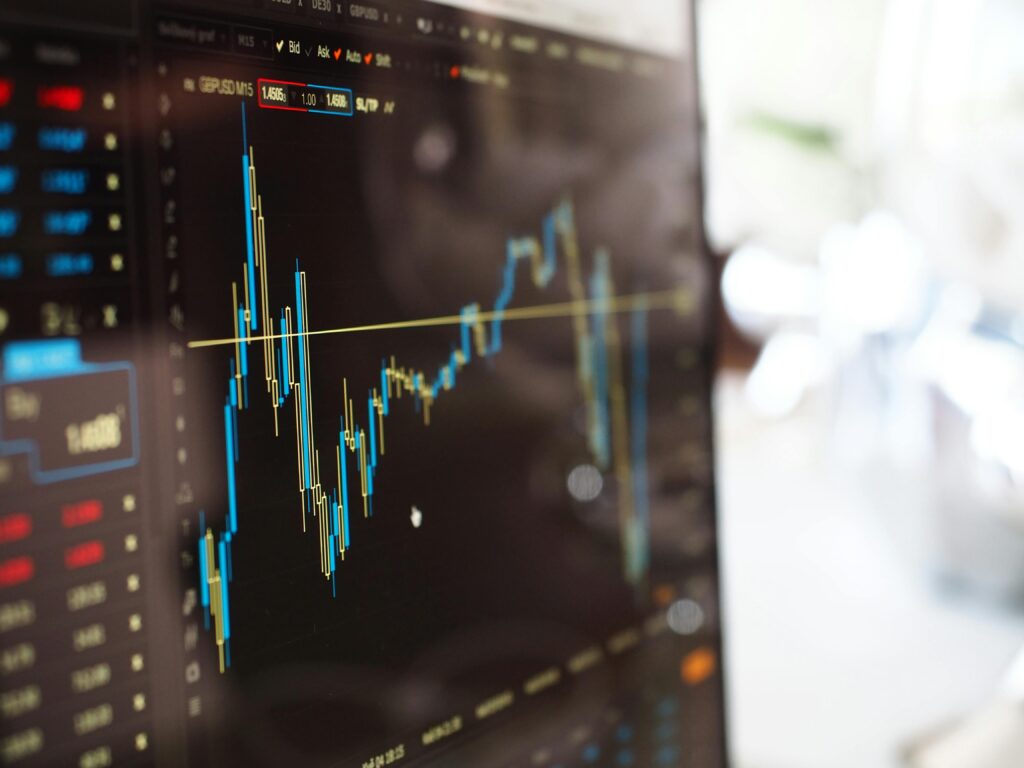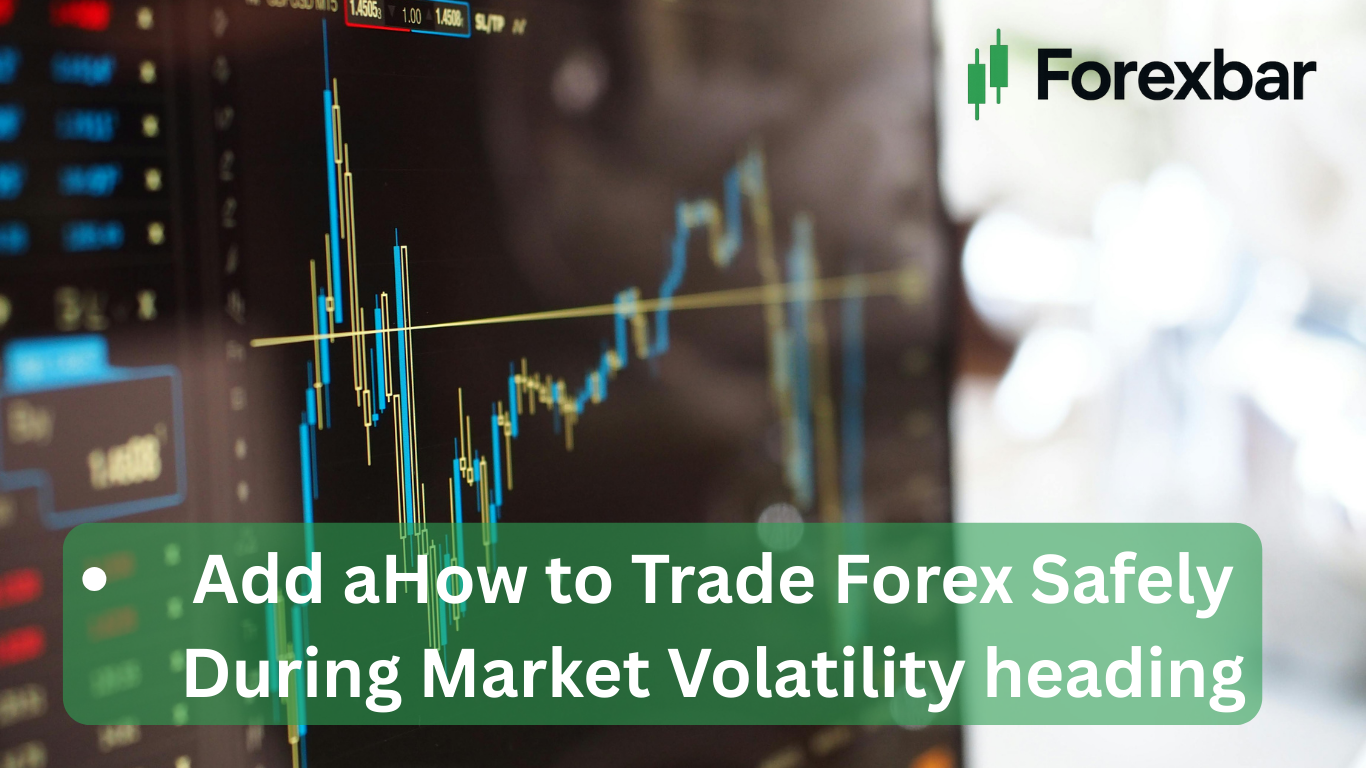How to Trade Forex Safely During Market Volatility
Introduction: The Double-Edged Sword of Market Volatility
Trade Forex Safely, Imagine this: you’re watching the EUR/USD chart when suddenly, in just minutes, the price moves 100 pips. For some traders, this feels like a golden opportunity. For others, it’s a nightmare.
That’s the reality of market volatility in forex. Volatility creates fast opportunities to make profits—but also equally fast chances to lose money if you aren’t careful. Trading safely during volatile times isn’t about avoiding risk completely; it’s about managing it wisely.
In this guide, we’ll explore practical strategies, tools, and mindsets that will help you trade forex safely when the markets are moving like a roller coaster.
👉 Related: 7 Forex Trading Mistakes to Avoid as a Beginner
What Causes Market Volatility in Forex?

Forex volatility refers to the speed and size of price movements in currency pairs. Some of the main causes include:
- Economic news releases – Non-Farm Payroll (NFP), interest rate decisions, and inflation data can cause massive swings.
- Geopolitical events – Elections, wars, or unexpected political changes impact global currencies.
- Central bank actions – Rate hikes or interventions in currency markets can shake forex pairs.
- Market sentiment – Fear or greed among traders amplifies volatility.
👉 Example: When the U.S. Federal Reserve announces unexpected interest rate changes, the U.S. dollar often experiences sharp moves.
Why Trading During Volatility Is Risky
Trading in high-volatility conditions is like driving a sports car at full speed—you can reach your destination faster, but the risk of crashing increases. Here are the dangers:
- Slippage – Orders may execute at worse prices than expected.
- Whipsaws – Sudden price reversals stop traders out quickly.
- Emotional trading – Fast markets push traders to make impulsive decisions.
- Wider spreads – Brokers often increase spreads during volatile events.
How to Trade Forex Safely During Market Volatility
Here are proven strategies to help you stay safe:
1. Use Proper Risk Management
- Never risk more than 1–2% of your account per trade.
- Set stop-loss orders to protect capital.
- Use smaller lot sizes during unpredictable times.
👉 Related: Spread in Forex: What It Is and Why It Matters
2. Trade Only High-Probability Setups
During volatility, not every trade is worth taking. Focus on setups that match your trading plan. For example:
- Breakouts from strong support or resistance.
- Trades aligned with the dominant trend.
- Avoid chasing sudden spikes without confirmation.
3. Keep an Eye on the Economic Calendar
Economic announcements can be a trader’s friend—or enemy. Always check a forex calendar before trading.
- If you want to avoid stress, stay out of the market before big announcements.
- If you want to trade the news, reduce lot size and expect higher risk.
👉 Investopedia: Economic Calendar Basics
4. Adjust Stop-Loss and Take-Profit Levels
Volatile markets move fast. A stop-loss that works in calm conditions may be too tight now.
- Use wider stops but reduce your position size.
- Set realistic take-profits, considering that prices may reverse quickly.
5. Stick to Major Pairs
Major pairs like EUR/USD, GBP/USD, USD/JPY are less prone to extreme price manipulation compared to exotic pairs. This makes them safer during volatility.
6. Avoid Over-Leveraging
Leverage can amplify both profits and losses. During volatile periods, using high leverage (e.g., 1:500) is dangerous. Stick to moderate leverage like 1:50 or 1:100.
👉 Related: Funded Forex Trading: Pros, Cons & Pitfalls
7. Use Technical and Fundamental Analysis Together
- Technical tools like Bollinger Bands, ATR (Average True Range), and moving averages help gauge volatility.
- Fundamental analysis helps you understand why the market is moving.
8. Control Your Emotions
Market volatility can trigger fear or greed. The safest traders are those who stay disciplined.
- Follow your trading plan.
- Avoid revenge trading after a loss.
- Remember: missing a trade is better than losing your capital.
👉 Related: Best Forex Indicators to Watch on MT4/MT5
A Quick Story: The Trader Who Ignored Volatility
Ahmed, a beginner trader, jumped into EUR/USD during an ECB press conference without checking the news. Within seconds, the pair spiked 120 pips in both directions. His stop-loss was hit, and he lost 10% of his account in one trade.
If Ahmed had followed basic rules—checked the economic calendar, reduced position size, and placed a safer stop-loss—he could have avoided the disaster.
Moral of the story: Preparation is your best defense against volatility.
Additional Tips for Safer Trading
- ✅ Use demo accounts to practice volatile conditions.
- ✅ Monitor liquidity—low liquidity periods (like holidays) increase volatility.
- ✅ Diversify trades—avoid putting all capital into one currency pair.
- ✅ Set alerts on your platform to avoid staring at charts all day.
Conclusion: Trade Smart, Trade Safe
Trading forex during market volatility is both exciting and risky. You can capture big moves, but without proper preparation, those moves can wipe out your account.
To trade safely, always:
- Manage your risk.
- Stick to your strategy.
- Use FPA reviews, economic calendars, and technical tools wisely.
Remember, successful trading isn’t about catching every move—it’s about protecting your capital first.
👉 Want to dive deeper? Check our guide: How to Start Forex Trading in 2025: Step-by-Step Guide
FAQs on Trading Forex Safely During Volatility
Q1: Is it safe to trade forex during news events?
It can be, but only if you use small lot sizes, wider stops, and proper risk management.
Q2: Which forex pairs are safest during volatility?
Major pairs like EUR/USD, GBP/USD, and USD/JPY are generally more stable.
Q3: How can I protect myself from sudden market spikes?
Use stop-loss orders, avoid over-leveraging, and always check the news calendar.
Q4: Should beginners trade in volatile markets?
It’s better for beginners to start in calmer conditions before attempting volatile periods.
Q5: What indicators are best for volatility?
ATR, Bollinger Bands, and volatility indices can help measure and manage risks.
Q6: Can I make more money during volatile markets?
Yes, but higher profits come with higher risks—safety should always come first.
